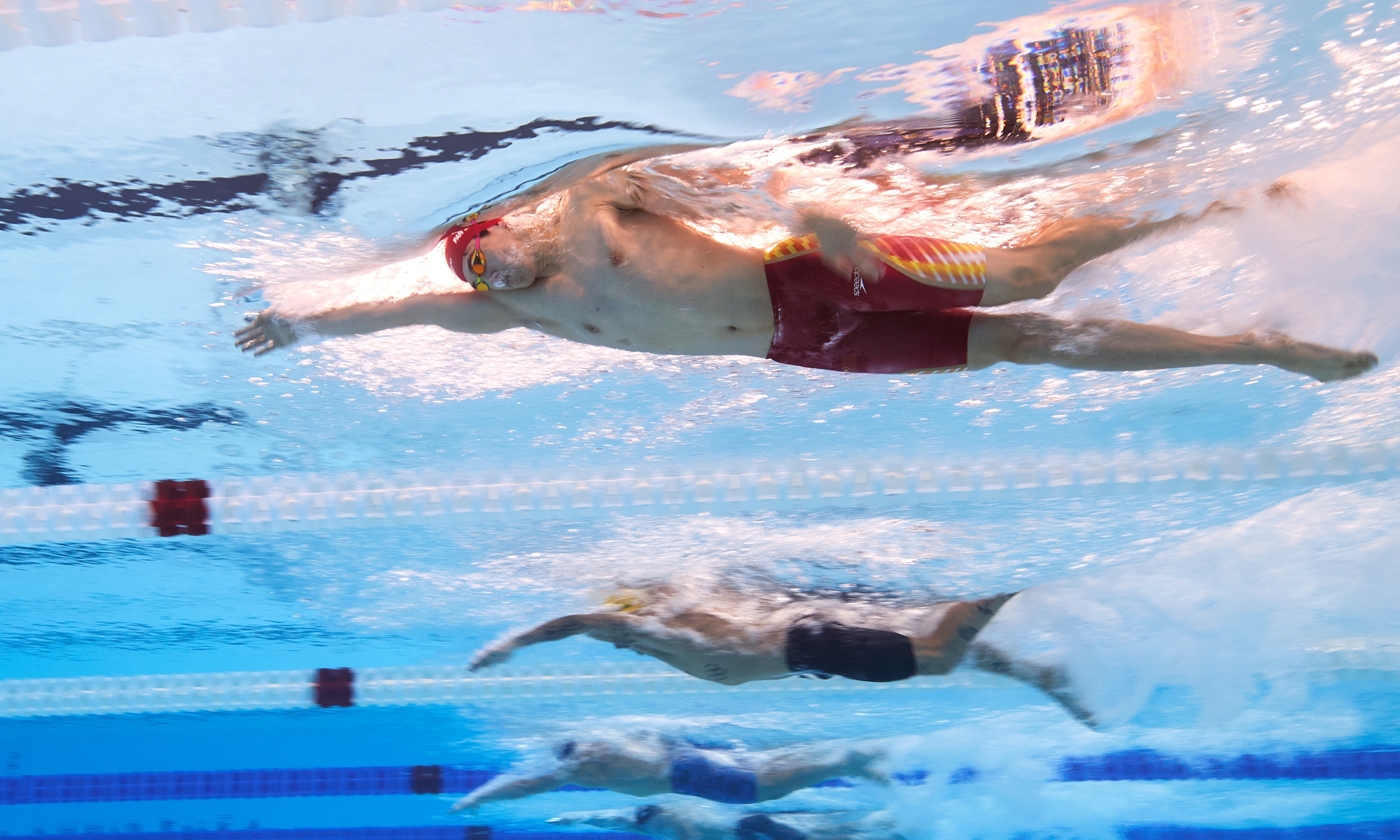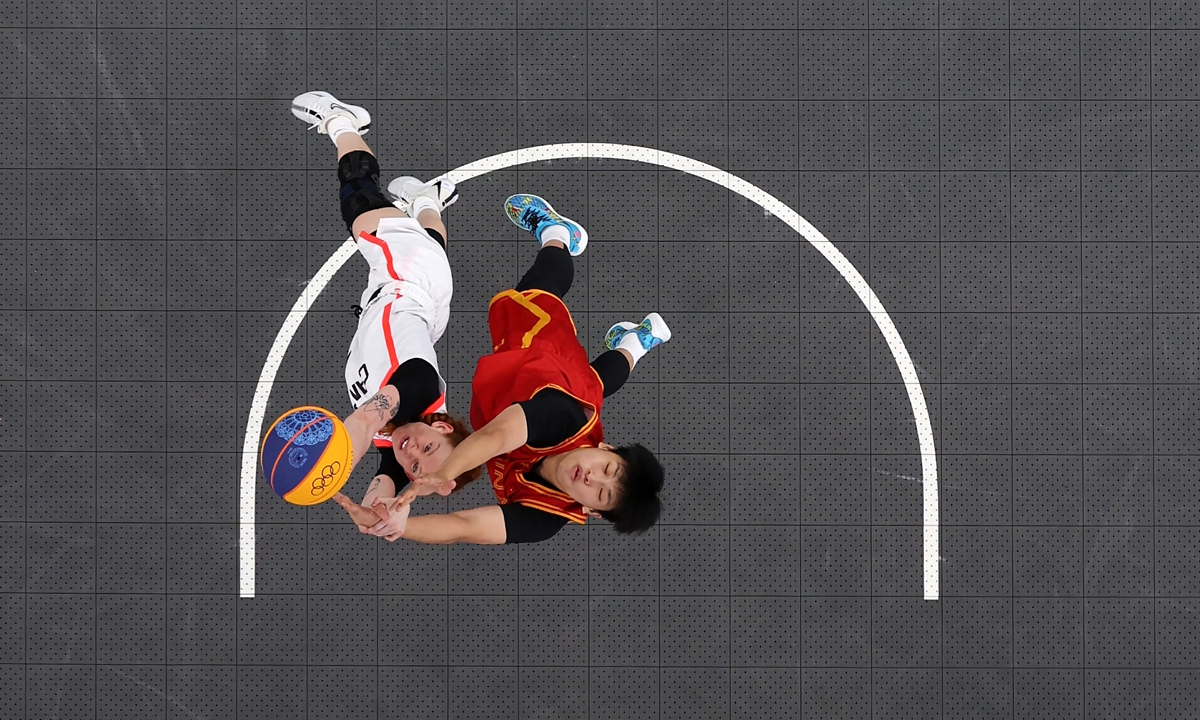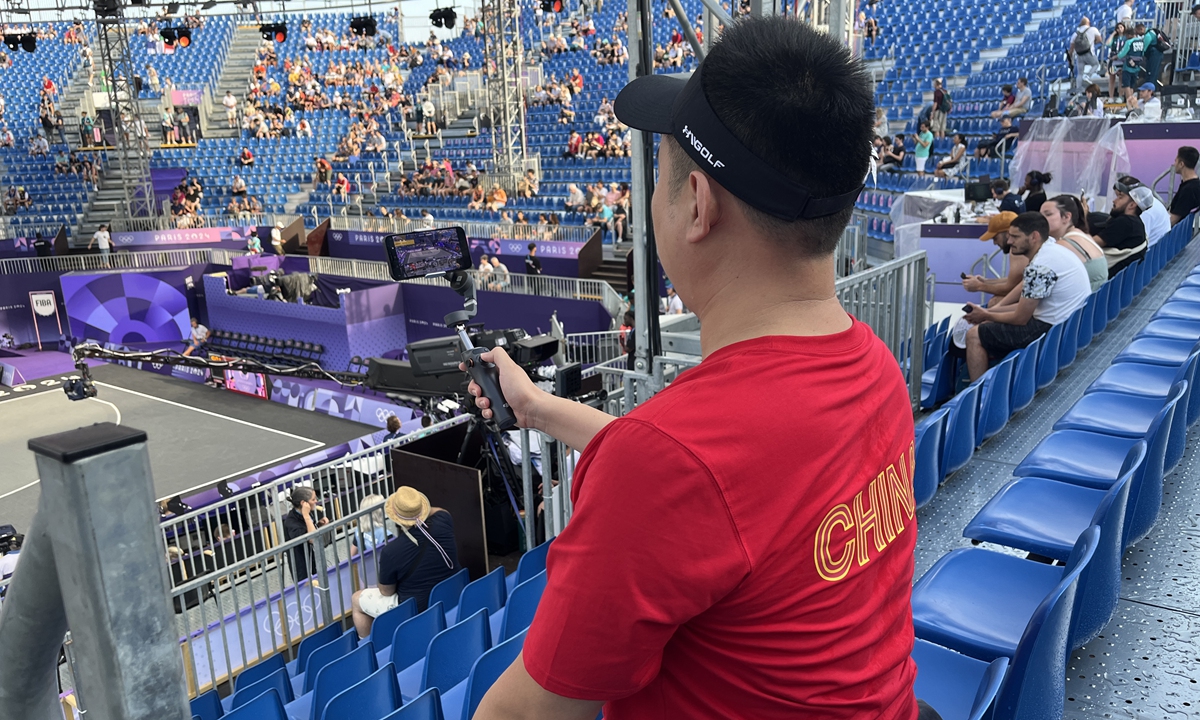Editor's Note:
Large models, robots, intelligent manufacturing, autonomous driving... In recent years, artificial intelligence (AI) has made headlines around the world.
In real life, AI has permeated all aspects of everyday life, helping with scientific research in laboratories, assisting in the restoration of mysterious ancient scrolls at archaeological sites, and helping rescue abducted children in the vast sea of humanity. The development of this technology has also raised a number of ethical and legal challenges. Many experts advocate that humans should see this technology as a tool created for the ultimate purpose of serving humanity, making life and work more efficient and comfortable.
In light of this, the Global Times has launched the "AI empowers industry, improves people's livelihoods" series, showcasing the tremendous energy and broad prospects that AI brings across every aspect of society.
This is the sixth installment in this series. The installment sets its sights on Paris, where global top athletes are vying for medals or personal bests. Behind Team China is the growing technological force, which helps them fight to win more scientifically and efficiently with AI tech. In China, the rapidly progressing AI not only plays a crucial role in high-level competitive sports, but also contributes significantly to the development of mass sports, and the popularization of sports culture.

Pan Zhanle, a Chinese swimmer, competes in the men's 100-meter freestyle final at the Paris Olympics, on July 31, 2024. He set a new world record winning gold. Photo: VCG
Having jumped off the starting block and plunged into the water, Chinese swimmer Pan Zhanle, at La Défense Arena in Paris, won an Olympic gold medal in the men's 100m freestyle on Wednesday local time, breaking the world record amidst loud cheers.
This particular night echoed the past several months, when the Chinese swimmer and his teammates leaped into the water countless times during training sessions back home. At that time, their coaches and technical staffers gathered by the poolside around a screen, which displayed the complete process of a swimmer's start from the block and underwater movements, with data like the swimmer's entry distance and angle.
"Cameron van der Burgh (South African men's 100m breaststroke Olympic champion) made an entry angle of 37 degrees, which we can use as a reference." Fixating on the screen, they discussed the details of the swimmers' movements, probably for the umpteenth time.
They trained with the help of "SUS large sport model," China's first-ever large model designed for professional sports. Team China at the ongoing Paris Olympics is largely benefiting from AI, as the rapidly developing technology is widely used in China's various fields including competitive sports.
The very front lineJointly developed by the Shanghai University of Sport (SUS) and a Chinese tech company, the SUS large sport model and its related technologies have been serving the daily training and Paris Olympic preparation of China's several national teams, such as diving, swimming, track and field, gymnastics, and rock climbing, according to Li Yongming, a SUS professor and member of the large model team.
With its vertical models that can study global sports literature data and automatically analyze videos and images from sports training and matches, the SUS large sport model assists athletes to better review and understand their performances with quantifiable metrics, and to make targeted training plans based on the metrics, Li told the Global Times.
As the Olympics unrolls in Paris, busy tech support staff are usually seen in venues apart from traditional personnel like coaches and team doctors. Then how much can AI help China's Olympic athletes striving for gold medal glory?
On Wednesday night local time, China pulled off an amazing 21-15 victory over gold medal favorites Serbia in a men's basketball 3x3 game. When the match ended, some Chinese tech support staff hurried away with videos they just shot during the game.

Players from China and Canada run for a loose ball during a Women's 3x3 basketball Pool Round match of the Olympic Games on July 31, 2024 in Paris. Photo: VCG
About one hour later, a detailed analysis with almost all the kinematics data relevant to this game came out. From every move of the players to their physical states, these data will effectively contribute to their post-match summary and preparation for the next match, said Zhang Mingxin, who directs the science and technology support team of the Chinese national basketball 3x3 team at Paris Olympics.
Based on a three-dimensional dynamic capture technology and algorithm, the AI system real-time tracks and analyzes the players' motions and the basketball's trajectories, explained Zhang, who is now in Paris. "Then we can obtain useful data, like a player's real-time load intensity and movement path, and AI-generated professional analyses according to the data," Zhang told the Global Times via phone.
All the dynamic capture process is completed without bothering players in the game, Zhang noted. "Comparing with the previous techs that might require players to wear uncomfortable censoring devices, this system does everything in a contactles way," he said.
Moreover, traditional dynamic capture technologies that depend on wearable censoring devices and GPS (Global Position System) usually have 30 to 40 centimeter margin of error, Zhang said. "But our new system has centimeter-level accuracy, leading the world in this (basketball 3x3) field," he told the Global Times.
This AI system is co-invented by SUS, Shanghai Artificial Intelligence Laboratory and a domestic tech firm. It can provide detailed data and analysis on a short turnaround time, helping the team better recover, prepare the next match and adjust tactics according to different opponents in tight schedule, said Zhang.
AI dynamic capture tech is also being used in Olympic preparations of some other Chinese national teams, such as archery. Xiu Yu, who is responsible for motion and technology analysis of the archery team, earlier told media that more than 10,000 data are generated for every arrow shot by the athlete.
"After processing and analyzing the data, [the AI system] will form a report for which is passes to team coaches," Xiu told to People's Daily in April.
Customized training based on intelligent analysis of big data are widely used in the training of Chinese athletes, said Chen Xiaoping, a distinguished research fellow from the China Institute of Sport Science affiliated to the General Administration of Sport of China.
"The overall improvement of scientific training level is an important way to improve [athletes'] performance," People's Daily quoted Chen as saying on April 8. "Behind the competition of competitive sports is a showdown of technological strength and proficiency."
Being part of the pageant Only being a spectator of the Paris Olympics is somewhat outdated for China's younger generation. Instead of passively sitting in front of the TV, some young Chinese prefer to actively get involved in the Olympics, being a part of this global sports pageant in creative ways.
China AIGC (AI-generated content) Industrial Alliance, for instance, holds a themed event during the Olympics, inviting AIGC lovers to create Olympic-related picture, music, video works with generative AI tools. The event has received more than 70 unique submissions, with most of the participators being millennials and Gen Zers, according to the alliance's initiator Ni Kaoming.

Zhang Mingxin collects video materials for AI analysis ahead of a basketball 3x3 game at Paris Olympics on August 1, 2024. Photo: Courtesy of Zhang
Ni shared some of the highlight works they have received, including an interesting AI-generated animated video that tells the magical journey of a panda to the Olympics. "Although there are some limitations on the use of Olympic elements due to copyright concerns, such as the Olympic rings, there are still many high-quality works that well express the Olympic charm and spirit," Ni told the Global Times.
Chinese tech companies are also offering various creative AI products being specifically designed for the Paris Olympics, which have attracted lots of young Chinese users.
Gen Zer Elaine (pseudonym) shared how she enjoys the Olympics in Shanghai through AI tools. While watching a diving match on Wednesday, she interacts with the event with a "virtual diving expert" - an AI agent of renowned former diving Olympic champion Wu Minxia - on her phone. When the event ends, she uploads her profile photo to an AIGC platform, and seconds later she got an AI-generated poster of her "attending" an Olympic diving match as an athlete.
"And before the Olympics began, I had had a virtual tour to Paris last week with the help of an AI large model," she told the Global Times.
AI does benefit the dissemination of the Olympic spirit and sports culture, Ni noted. "With AI technology, people get much closer to the Paris Olympics, its host city and athletes, and thus make them feel more connected with this pageant," he told the Global Times.
Great sporting potential
The AI market in sports industry is expected to grow from $5.93 billion in 2024 to $20.94 billion by 2029, at a CAGR (compound annual growth rate) of greater than 28.69 percent, according to data from market research company Mordor Intelligence.
Apart from the high-level competitive sports, mass sports is becoming a broader stage for AI applications in China. From last year, AI robots are gradually used in post-match rehabilitation of public marathon events across the country. The AI robots, as the robot team's director Li Xiaoning told the media in January, are more helpful and efficient than traditional rehabilitation ways of ice water and manual stretching.
The current 1.0 version of the SUS large sport model mainly focuses on competitive sports. Li said it will definitively cover mass sports in later versions, adding in more content that general public are interested in, such as how to exercise to lose weight.
The AI dynamic capture tech being used for the Chinese basketball 3x3 team has many potential application scenarios in mass spots as well, Zhang said.
He gave an example: the system can be changed into an AI coach that assists beginners of a certain sports to modify their incorrect moves.
"Also, AI tech can mark people's sport performances by evaluating their moves, and that may encourage entertaining competitions and interactions among friends," he added. " In general, AI will bring sports lovers more fun while making them more productive."






